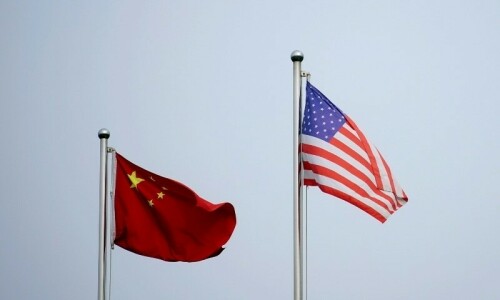DUBAI: Iran will not back down on its ‘red lines’ in nuclear talks with major powers, President Ebrahim Raisi said on Tuesday, after the European Union said the time had come for Washington and Tehran to take political decisions needed to reach an accord.
Eleven months of negotiations to revive the 2015 nuclear deal which lifted sanctions on Iran in return for curbs on its nuclear programme have reached their final stages.
Iran has sought to remove all sanctions and it wants guarantees from the United States that it will not abandon the deal once more, after then-US president Donald Trump walked out of the deal in 2018 and re-imposed sanctions.
Iran’s top negotiator, Ali Bagheri Kani, returned to Tehran on Monday for consultations.
“The government pursues nuclear negotiations in full accordance with the principles and framework set by the Supreme Leader,” President Raisi said, referring to Ayatollah Ali Khamenei, who has the final say in Tehran’s decision. “It has not and will not back down on any of these red lines,” the semi-official Fars news agency quoted Raisi as saying.
Talks coordinator Enrique Mora of the European Union said on Monday that the political decisions needed to conclude the negotiations successfully must be taken in the next few days.
Diplomats say several differences still need to be overcome in the talks, which were also hit by a last-minute demand from Russia for a guarantee from the United States that Russian trade, investment and military-technical cooperation with Iran would not be hindered by sanctions over its invasion of Ukraine.
Military satellite
Iran announced on Tuesday it had successfully placed a military satellite in orbit, as talks on reviving a 2015 nuclear deal between Tehran and major powers reach a critical stage.
“Iran’s second military satellite — named Nour-2 — has been launched into space by the Qassed rocket of the aerospace wing of the Revolutionary Guards and successfully placed in orbit 500 kilometres above the Earth,” the official IRNA news agency reported.
The Islamic Revolutionary Guard Corps described the Nour-2 as a “reconnaissance satellite” in a statement on its Sepah News website.
It said the satellite was launched from the Shahroud desert in Semnan province, some 300km east of the capital.
Published in Dawn, March 9th, 2022














































